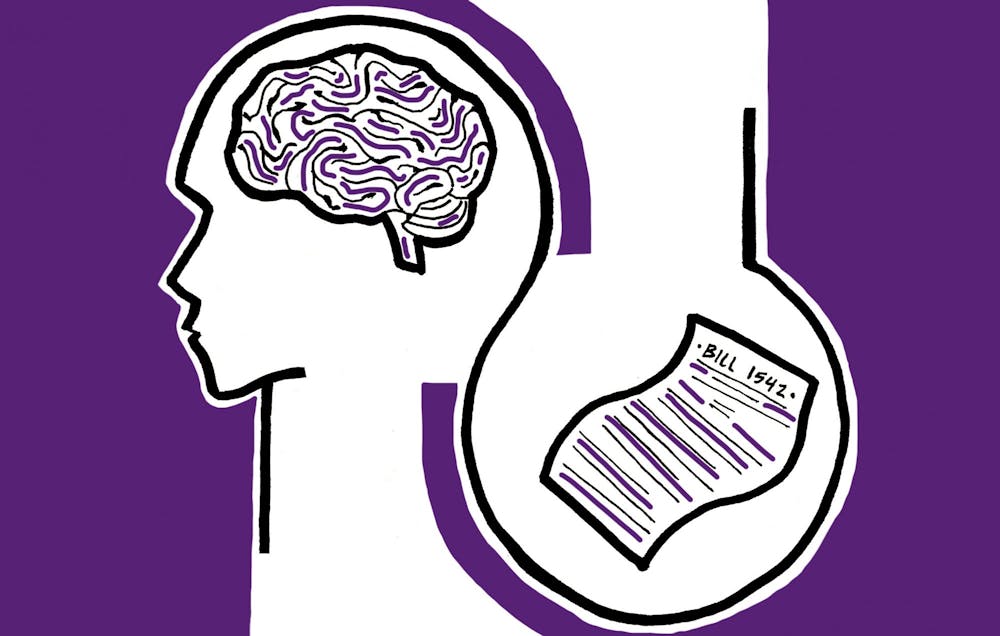The Alzheimer’s Association in Indiana is advocating for the passage of House Bill 1542 during its virtual advocacy week on Feb. 1-5, according to a press release from the Alzheimer’s Association Greater Indiana Chapter on Jan 26.
House Bill 1542 outlines training specifications for police officers and medical responders when responding to people with Alzheimer's disease and dementia. Training includes identification of symptoms, communication and protocols for contacting caregivers.
Natalie Sutton is the executive director of the Alzheimer’s Association Greater Indiana chapter. Because of safety issues in dementia-related emergency situations, Sutton said the goal of training is making police and medical officers aware so they can adequately respond to people with dementia.
“If our law enforcement and EMS can recognize that they're dealing with dementia, and if they have the skills to positively work through a situation with someone, they can just really support those families that are living in the community with this issue,” Sutton said.
Sutton said it's important for Indiana to update its previous dementia plan, which planned through 2017. She said the new plan could make a difference in the lives of those with dementia and enable them to apply for certain federal funding in the area.
Sutton said this year has been difficult for legislation to pass since legislators are focused on the pandemic.
“We are certainly working to hopefully get a hearing in the public health committee for this bill,” Sutton said.
Dr. Liana Apostolova, who is a neurologist at IU Health, said training for law enforcement is critical. She said confrontation and restraints can be harmful and do not help people with dementia.
“They absolutely must be educated on the challenges and the right approaches to deal with such patients,” Apostolva said.
If the bill passes, the State Department of Health will develop a strategic plan assessing adequate care for Alzheimer’s and dementia patients. This plan would cover diagnosis trends, economic costs, services, resources and care evaluation. It will also reduce costs and increase quality of care. The bill would also employ a statewide dementia coordinator to implement the plan and establish a state dementia council.
“There are so many patients with dementia that need help and families that need counseling and support,” Apostovla said.
Will Unverzagt, the president of the Alzheimer’s Student Alliance at IU, said there are not enough resources for Alzheimer’s patients or nurses who know how to care for Alzheimer’s patients.
He said one of the club’s main objectives has been to raise money for a class that would allow students to become registered nurses by the end of the semester.
Joel Cebrero, the vice president of the Alzheimer’s Student Alliance at IU, said volunteering is one way students can help people with Alzheimer’s.
“When you leave out of that building, I feel like I made a difference.” Cebrero said of volunteering.
The Alzheimer’s Association has registered more than 200 participants for Advocacy Week to raise awareness and communicate with legislators about the effect Alzheimer’s and dementia has had on their families. Sutton said registration for Advocacy Week activities are open until Friday.
“I shared the power of the volunteers with our organization,” Sutton said “And you know that that power is very strong.”






